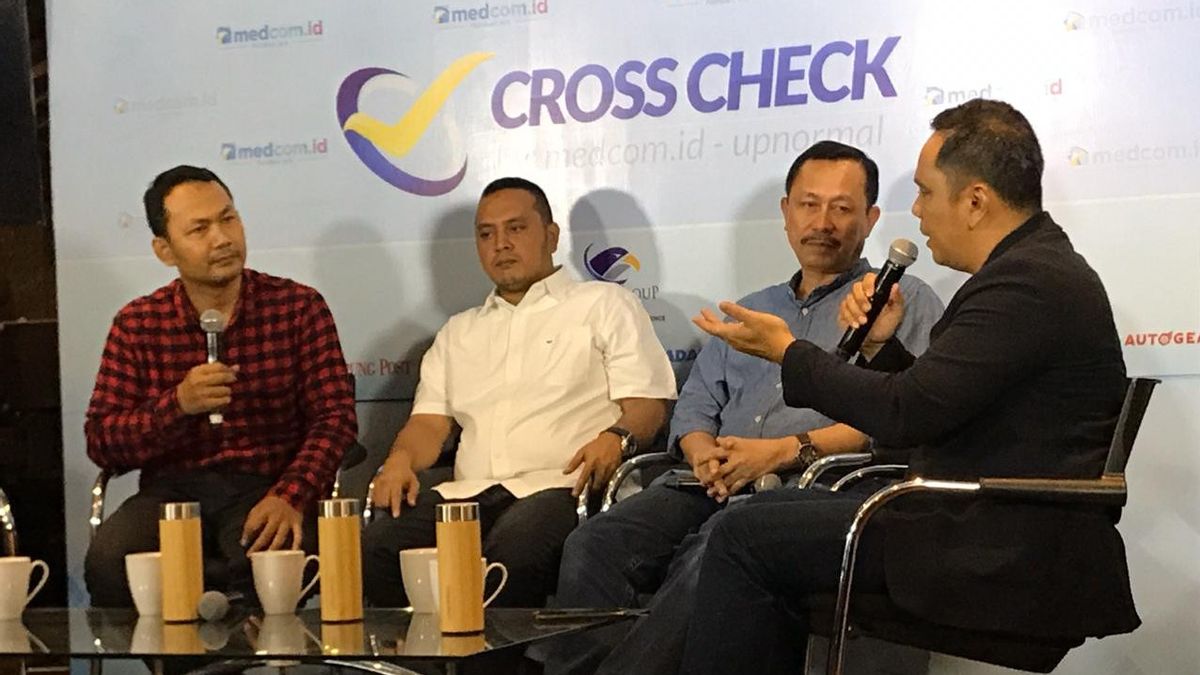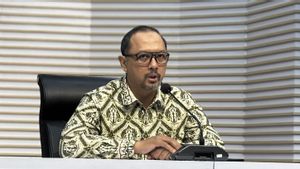JAKARTA - Stories about Indonesian citizens who want to fight with ISIS (Islamic State of Iraq and Syria) to uphold an Islamic state are often heard by the public on social media. And if the government later decides not to repatriate former ISIS citizens, it means that the government is not playing games with anyone who is hostile to the state.
This was conveyed by Member of the Indonesian House of Representatives Commission I Willy Aditya who also agreed more if the government did not return the 660 Indonesian citizens who were former ISIS combatants to provide a deterrent effect.
"When they can't go home, when their citizenship status is stateless, let them become asylum seekers. Even if the political decisions will be different, when that happens, they will realize, the public will see, the world will see that, this is punishment for those who playing around, "Willy said in a discussion in the Cikini area, Central Jakarta, Sunday, February 9.
Willy also said that citizens who are now in the Middle East and participating in war are no longer Indonesian citizens (WNI) because they automatically lose their citizenship after being willing to fight for the Islamic State of Iraq and Syria or ISIS.
His remarks, said Willy, were based on Law Number 12 Year 2006 Article 23 points d and e which regulates the loss of citizen status. In this law, he explained, a person can lose their citizenship status if they enter the service of a foreign army without first asking the president's permission.
"They are former Indonesian citizens. Because the law explicitly states that a combatant who fights for another country will lose his citizenship. Then they have also been outside Indonesia for five years. That is also invalidated," he explained.
Can not be black and white in deciding
Meanwhile, in the same discussion, the Head of the National Human Rights Commission (Komnas) Ahmad Taufan Damanik actually assessed that the discourse of repatriating hundreds of Indonesian citizens who were former ISIS combatants could not be decided in black and white. The reason is, not all of them have the same background, considering that there are residents who voluntarily join but there are also those who only come because they are family members.
So that there needs to be precision from the government in managing them. Moreover, there are also children who come to the Middle East and join because their parents and they do not understand what ISIS is.
"60 percent of them are children under 12 years of age. So is it the same as combatants who are very ideologically anti-anything with Indonesia. It's different," said Taufan.
He also assessed that if the government later decides not to repatriate there is actually no problem. Most importantly, according to Taufan, it must be clear the legal basis or basis for making this decision.
"As long as the legal basis is clear, the international community can also understand it, there is no problem. That's the choice," he said.
Taufan did not deny that the decision about not returning the ex-ISIS Indonesian citizens could draw criticism. So that the government's movement must be truly measurable but not too protracted.
"The government must be careful, but it shouldn't take too long ... This is not a humanitarian issue but a legal issue," said Taufan.
He also reminded that, for example, 660 ex-ISIS Indonesians were not sent home, it does not mean that the government can let go of their hands. Given that hundreds of people are Indonesian citizens. However, regarding procedures, Taufan left it entirely to the Indonesian government.
Meanwhile, government representatives who attended the discussion, Chief Expert of the Presidential Staff Office, Ali Mochtar Ngabalin, considered that returning to Indonesia for ex-ISIS citizens who are now in the Middle East is part of the risks they have to face as a result of their actions.
Because, like it or not, the Indonesian citizen made a conscious decision to leave Indonesia and defend ISIS in the hope of finding a jihad path to heaven.
"So the meaning is this, whoever goes and acts on behalf of himself for his own pleasure, to choose his ideology, then leaves and leaves Indonesia, then takes his heavenly path, takes that path," said Ali.
So, whatever risks that may occur, including not being sent home, Indonesian citizens must live up to their decision to choose ISIS.
"You are safe or you are not safe, that's your business. Do not burden the state and government and the people of Indonesia with your repatriation plan," he concluded.
The English, Chinese, Japanese, Arabic, and French versions are automatically generated by the AI. So there may still be inaccuracies in translating, please always see Indonesian as our main language. (system supported by DigitalSiber.id)












